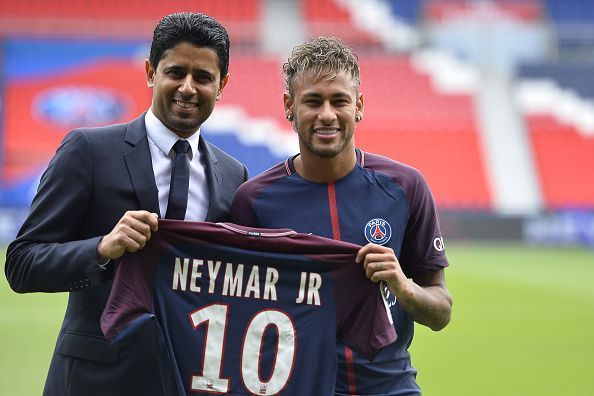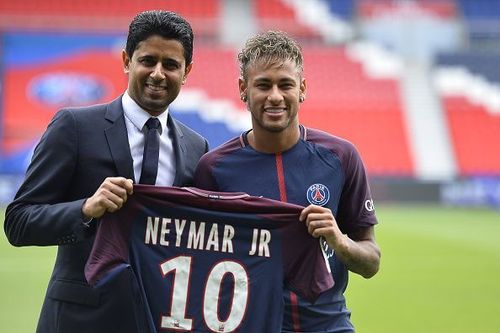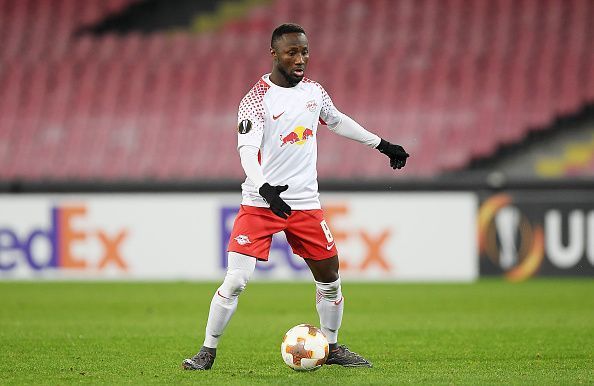
Hyper-inflation in football: Why the biggest game of the world is not the same anymore

Brazilian superstar Neymar Jr grabbed all the transfer headlines of the summer of 2017 with his record-breaking 200 million swap from Spanish club FC Barcelona to Paris Saint-Germain. But, barring Neymar’s standards, the spending on the English Premier League front has been simply astounding. Nowadays, 40 million fees for a football player has become commonplace and the record-breaking expenditure of 1.160 billion will certainly be hammered again in the upcoming transfer windows.
Since the past few seasons, football has become all about the money. Yes, some will argue that any and every game’s development needs effective money outlay. But clearly, this was the summer in which the transfer market got out of control.
It has been 25 years since the inception of the Premier League and transfer fees have risen at an exponential rate ever since. Though we can argue that the hike in fees themselves has been unbelievable, what is more interesting is the fact that vast amounts are being spent on players that are not established world-class players.
In 1992, striker Dion Dublin was signed by Manchester United in what was called their first landmark summer signing for £1 million (around £2 million in today's money). Fast-forward to this summer and we’ve seen right-back Kyle Walker join Manchester City for round-about £50 million.
Not to forget the transfer of Real Madrid benchwarmer Alvaro Morata for £60 million to Chelsea. The alarming rate at which English Premier League clubs are spending is shocking but it should not come as a great surprise for us. Neither should we expect it to last forever.
Football pundits and journalists across Europe are reporting that the football business is undergoing a severe form of ‘hyper-inflation’. English football is precisely experiencing this phenomenon. The increase in available transfer capital has not been matched by a growth in the number of star players and hence prices have sky-rocketed.
Price inflation has swollen severely in recent years though it is not something new in the game. From the 2006-07 season to the 2011-12 season, the spending done by Premier League clubs has risen by an enormous 1 billion. The question is, can we, anytime soon, expect this trend to cease?
Statisticians and football experts report that it will, but when the money supply desiccates. They have brought to light the fact that this hyperinflation is a direct repercussion of the staggering £5 billion broadcasting deal the Premier League struck with BT and Sky Sports a few years ago.
But, on the contrast, statistics show that there has been a 13% drop in viewing figures on Sky's channels across the previous season which makes it uncomfortable news for Premier League managers. If this is to continue, it is extremely unlikely that Sky Sports will be willing to pay a little more than £4 billion again for the privilege of broadcasting Premier League games.
This means that depletion in the money supply seems to occur soon. Till then, we can expect Premier League clubs to spend landmark sums of money for unestablished players. In the meantime, clubs on the other side of the continent are taking full advantage of English clubs.
This is because they have understood this supply and demand principle and are therefore rejecting to sell players for anything less than a fortune. Take, for example, German club Red Bull Leipzig forcing Liverpool to pay £48 million for the relatively unknown Naby Keita.

We can expect this transfer mayhem to come to a close in 2019 with the completion of the broadcasting deal but it can probably get even worse before it sees any daylight. The hyper-competitiveness of the football business has surely been a reason in this downfall of the “most-prestigious game on the planet”.
Clubs look at each other’s spending, which in turn encourages them to indulge in profligacy and then they start to spend colossal sums themselves. That day is certainly not far away when English football witnesses its first ever £100 million transfer.